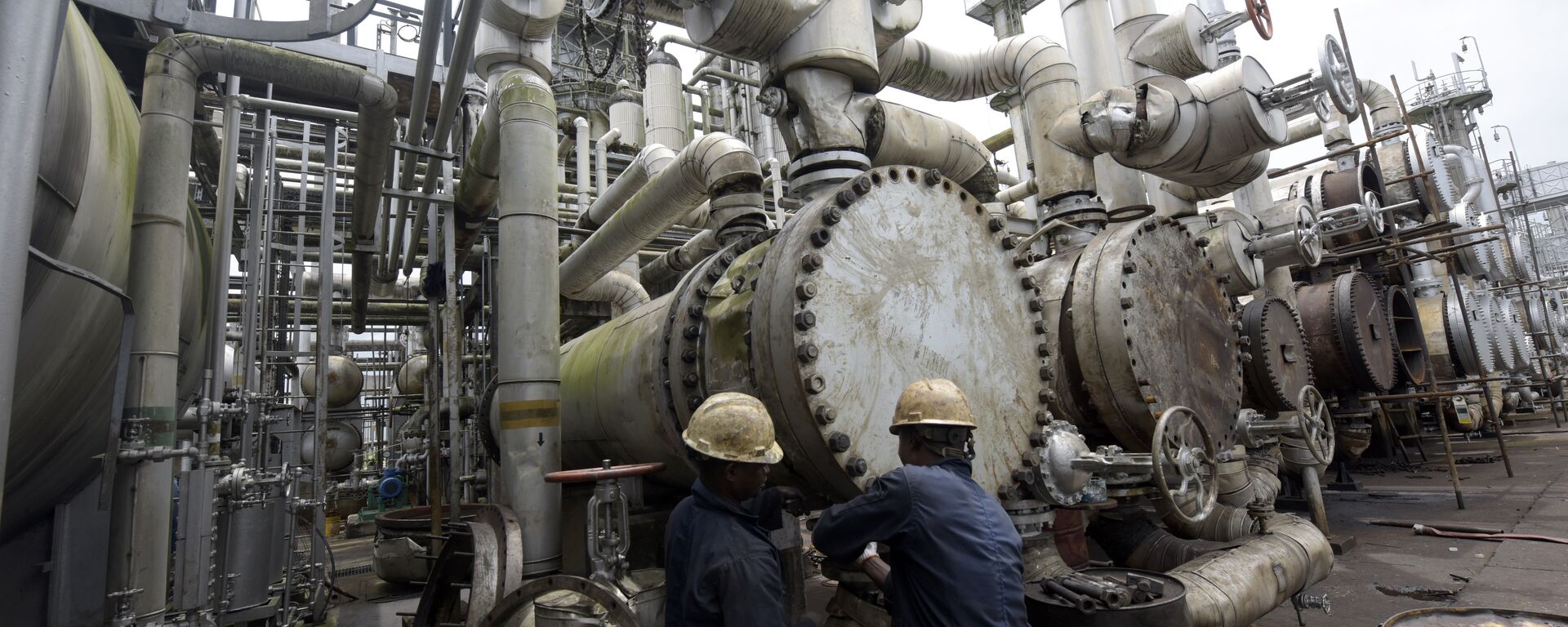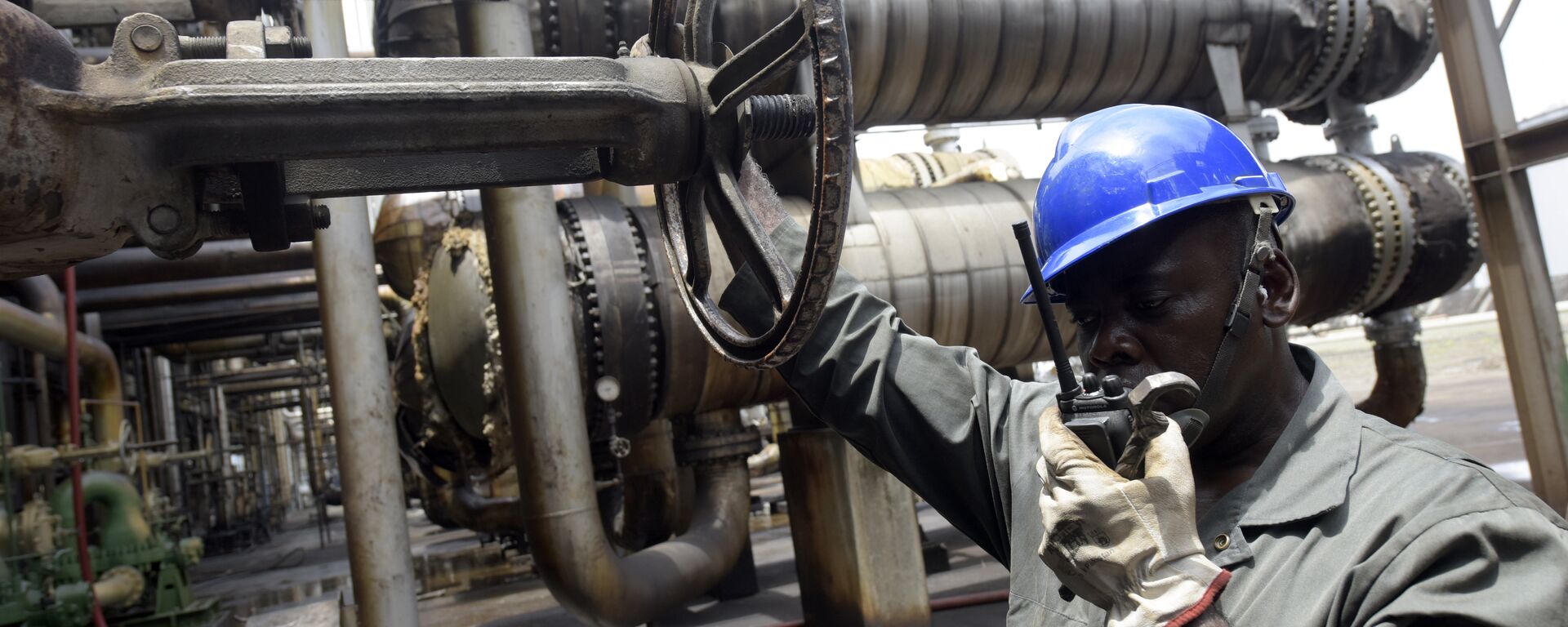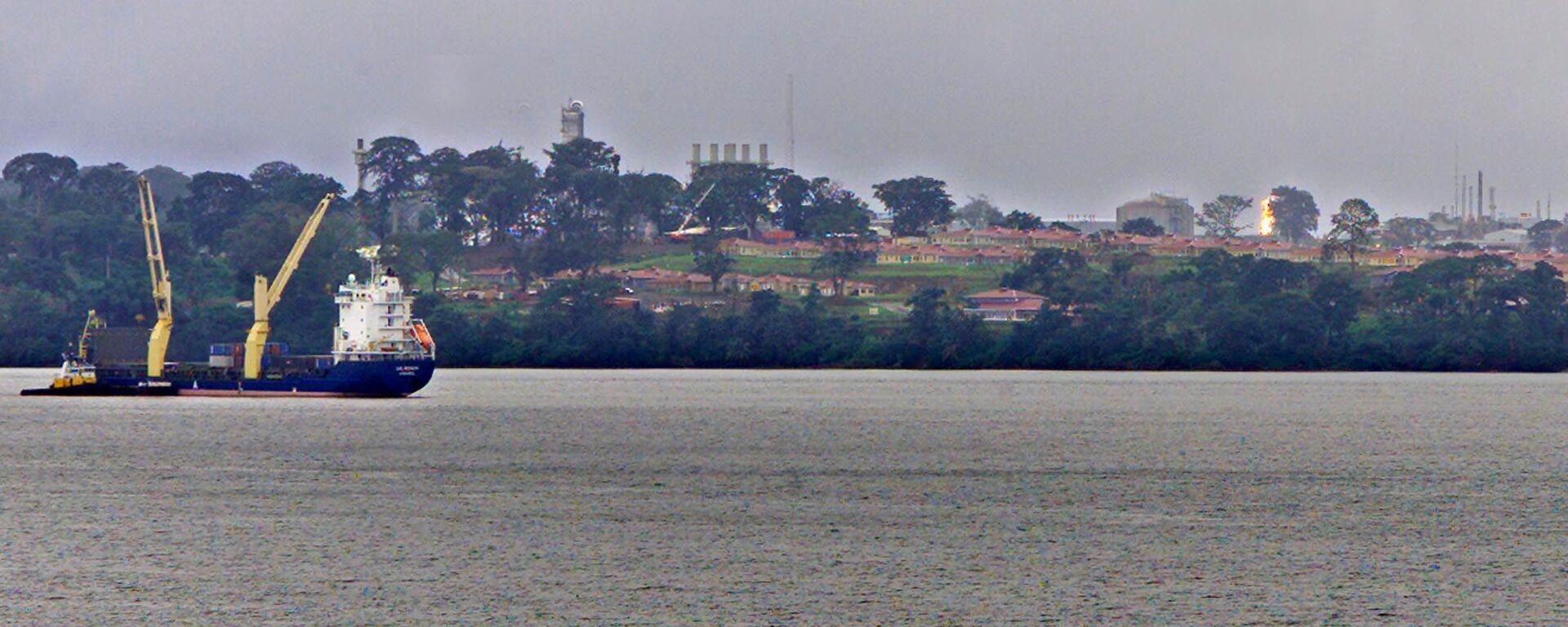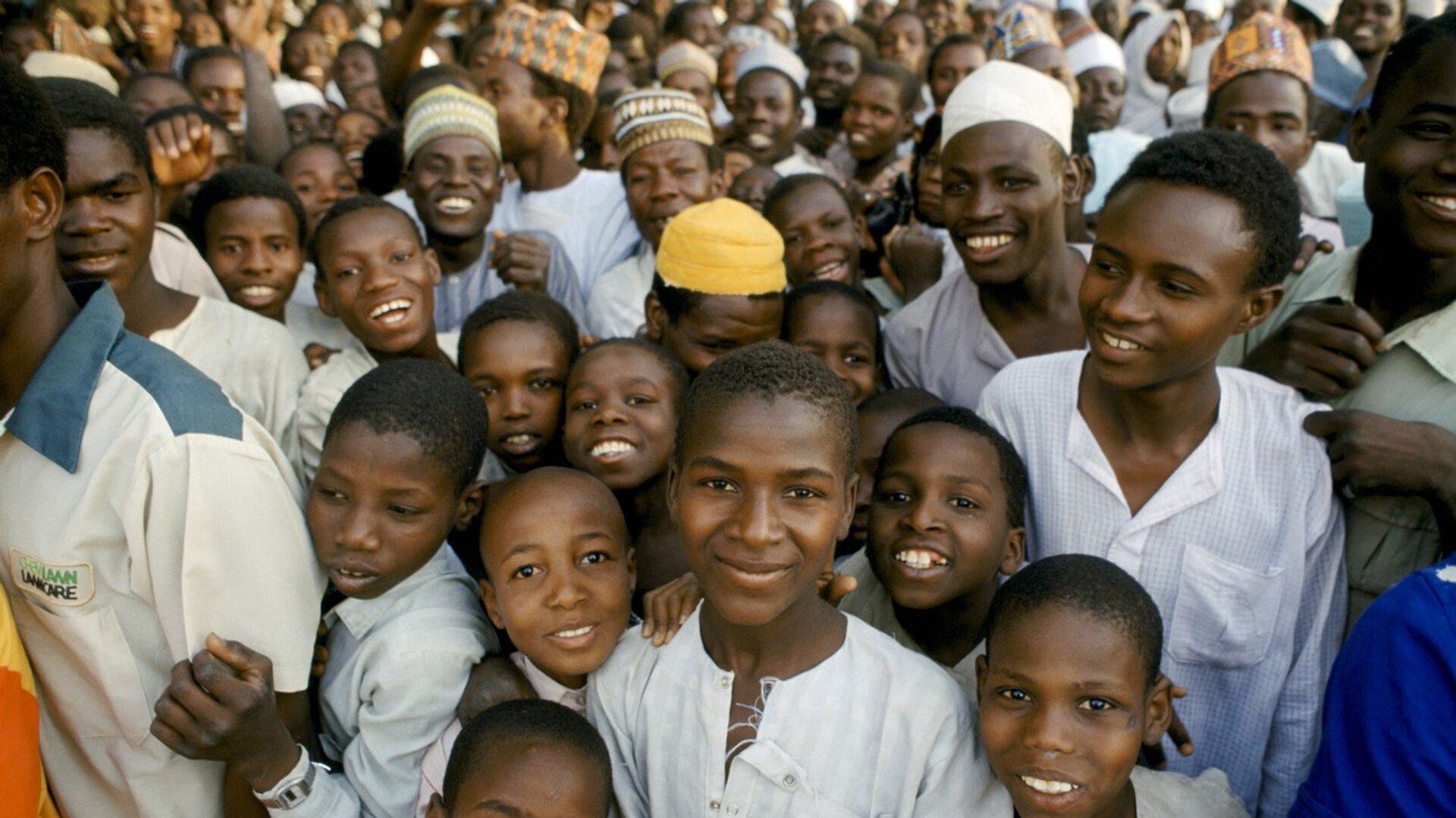https://sputnikglobe.com/20220921/is-washington-against-africa--eu-benefitting-from-long-term-gas-projects-1101021119.html
Is Washington Against Africa & EU Benefitting From Long-Term Gas Projects?
Is Washington Against Africa & EU Benefitting From Long-Term Gas Projects?
Sputnik International
The Nigeria-Morocco gas pipeline project (NMGP) could benefit 13 African countries and their 340 million inhabitants while providing fuel to Europe. However... 21.09.2022, Sputnik International
2022-09-21T11:21+0000
2022-09-21T11:21+0000
2022-11-15T14:20+0000
africa
us
europe
opinion
coal
energy crisis
climate change
john kerry
nigeria
islamism
https://cdn1.img.sputnikglobe.com/img/19199/08/191990874_0:77:1301:808_1920x0_80_0_0_f6dcd348d1f761652e022bed3105568e.jpg
As Europe is bracing for a cold winter amid a simmering energy crisis, Nigeria and Morocco are pushing ahead with an ambitious gas project the EU could potentially benefit from one day. Earlier this year, EU members turned to hydrocarbon-rich African states, seeking to replace Russian natural gas supplies. Following in the footsteps of the US and the UK, the European bloc has slashed oil and gas imports from Russia over Moscow's special operation to "demilitarize and de-Nazify" Ukraine.African nations are eager to capitalize on the unfolding energy bonanza as gas and oil prices continue to soar, driven by the West's climate change policies, post-COVID recovery and sweeping anti-Russian sanctions. On September 15, the Nigerian National Petroleum Company (NNPC) inked a memorandum of understanding (MoU) with Morocco to build a 7,000-kilometer offshore gas pipeline. On September 8, a number of Central African states signed an agreement to create a regional oil and gas pipeline network by 2030 to ensure energy security. Earlier, in July, the Algerian, Nigerian and Nigerien energy ministers inked a memorandum of understanding to build a trans-Saharan gas pipeline (TSGP) more than 4,000 kilometers in length.Bloomberg noted on September 15th that the Nigeria-Morocco gas pipeline "would provide gas to the 15-country Economic Community of West African States (ECOWAS), which also signed the agreement, and permit fuel to be shipped to Spain and the rest of Europe," admitting, however, that the endeavor could take decades to complete.Kerry Warns Against Long-Term Gas Projects in AfricaEven though the aforementioned projects could benefit both the developing nations of Africa and European consumers, John Kerry, the United States' special presidential envoy for climate, warned Reuters last week that those investing in long-term gas projects in Africa would be unable to recoup their investments beyond 2030.According to Kerry, the world is transitioning away from fossil fuels to cleaner energy sources and is set to reach net-zero emissions in 2050. While some are switching to gas, considering it cleaner than petroleum, it will be important to capture the emissions from gas after 2030, according to the US climate czar.According to Ogundiwin, if Kerry really had concerns about Nigeria's welfare, he would have addressed Africa's pressing issues such as Islamic fundamentalism and economic crisis rather than climate change."Nigeria was better [off] in 2015 than what we have today," Ogundiwin says. "Inflation has risen to 20.9% or so, as of today. We have an unemployment rate of over 40% in Nigeria. Terrorists are here. Bandits are here… Is the United States of America not aware that since the emergence of this present administration, Islamic fundamentalists have not only devastated the majority of the northern states, they have now spread south? So that there is not one of the 36 states that make up the Nigerian state that is not affected (...) So is the United States of America not aware? We see, we read about warnings, how terrorist Islam, Boko Haram and the likes are moving down south."Africa Accounts for Miniscule Amount of EmissionsMeanwhile, one needs to bear in mind that Africa "accounts for less than 1% of greenhouse gas emissions and yet is on the receiving end of many of the worst fallouts from climate change," according to Joachim MacEbong, the lead analyst at Lagos-based Acorn and Sage Consulting.At the same time, the EU and the US have been slow in implementing "climate" policies they are requiring others to adhere to, according to MacEbong. The developed nations have no scruples about using "dirty" fuel as the energy crisis bites. Thus, Washington is calling upon domestic and OPEC oil producers to pump more crude, while Europe is increasingly buying coal. According to Reuters, prices for thermal coal, used to generate electricity, have mounted to record levels. "Buyers in Europe and beyond are now vying to pay top dollar for coal from often remote mines in places such as Tanzania, Botswana and even potentially Madagascar," the media outlet reported on September 20."The current energy crisis in Europe reinforces the viewpoint that long-term energy transition timelines should not be cast in stone, rather it should be set to reflect the energy needs, resources, and economic realities of each country," notes Dr. Wisdom Patrick Enang, a Nigerian oil and gas consultant. "Essentially, to avoid an energy and economic crisis, different countries should be allowed to transition at a pace that is affordable and sustainable to them. To date, renewable energy sources remain largely subsidized on large scale commercial applications, and are not suitable for deployment as sole energy sources in developing countries with constrained finances."Africa's Gas Projects 'Step in the Right Direction'According to Enang, "the pursuit of energy transition and decarbonization has been overly politicized, with everyone taking sides with the argument that best suits their current economic situation." He argues that the general focus of energy transition should be "on achieving a cleaner and economically sustainable energy mix (in terms of availability and affordability)." The Nigerian oil and gas consultant does not see a global energy mix that will not feature fossil fuels in some proportion over the next 50 years.
https://sputnikglobe.com/20220918/how-west-uses-climate-agenda-to-keep-africas-oil--gas-underground-to-satisfy-own-appetite-1100931199.html
https://sputnikglobe.com/20220910/nigeria-reports-lowest-oil-exports-in-25-years-amid-disastrous-theft-crisis-1100630090.html
https://sputnikglobe.com/20220912/energy-experts-russia-could-be-instrumental-in-building-central-african-oil--gas-pipelines-1100691562.html
africa
nigeria
morocco
russia
Sputnik International
feedback@sputniknews.com
+74956456601
MIA „Rosiya Segodnya“
2022
News
en_EN
Sputnik International
feedback@sputniknews.com
+74956456601
MIA „Rosiya Segodnya“
Sputnik International
feedback@sputniknews.com
+74956456601
MIA „Rosiya Segodnya“
us, europe, opinion, coal, energy crisis, climate change, john kerry, nigeria, islamism, morocco, gas pipeline, russia, africa in details, gas, oil
us, europe, opinion, coal, energy crisis, climate change, john kerry, nigeria, islamism, morocco, gas pipeline, russia, africa in details, gas, oil
Is Washington Against Africa & EU Benefitting From Long-Term Gas Projects?
11:21 GMT 21.09.2022 (Updated: 14:20 GMT 15.11.2022) The Nigeria-Morocco gas pipeline project (NMGP) could benefit 13 African countries and their 340 million inhabitants while providing fuel to Europe. However, US climate czar John Kerry is not happy with the development, and is arguing against the viability of long-term gas projects in Africa.
As Europe is bracing for a cold winter amid a simmering energy crisis, Nigeria and Morocco are pushing ahead with an ambitious gas project the EU could potentially benefit from one day. Earlier this year, EU members turned to hydrocarbon-rich African states, seeking to replace Russian natural gas supplies. Following in the footsteps of the US and the UK, the European bloc has slashed oil and gas imports from Russia over Moscow's special operation to "demilitarize and de-Nazify" Ukraine.
African nations are eager to capitalize on the unfolding energy bonanza as gas and oil prices continue to soar, driven by the West's climate change policies, post-COVID recovery and sweeping anti-Russian sanctions. On September 15, the Nigerian National Petroleum Company (NNPC) inked a memorandum of understanding (MoU) with Morocco to build a 7,000-kilometer offshore gas pipeline. On September 8, a number of Central African states signed an agreement to create a regional oil and gas pipeline network by 2030 to ensure energy security. Earlier, in July, the Algerian, Nigerian and Nigerien energy ministers inked a memorandum of understanding to build a trans-Saharan gas pipeline (TSGP) more than 4,000 kilometers in length.
Bloomberg
noted on September 15th that the Nigeria-Morocco gas pipeline "would provide gas to the 15-country Economic Community of West African States (ECOWAS), which also signed the agreement, and permit fuel to be shipped to Spain and the rest of Europe," admitting, however, that the endeavor could take decades to complete.

18 September 2022, 14:18 GMT
Kerry Warns Against Long-Term Gas Projects in Africa
Even though the aforementioned projects could benefit both the developing nations of Africa and European consumers, John Kerry, the United States' special presidential envoy for climate,
warned Reuters last week that those investing in long-term gas projects in Africa would be unable to recoup their investments beyond 2030.
According to Kerry, the world is transitioning away from fossil fuels to cleaner energy sources and is set to reach net-zero emissions in 2050. While some are switching to gas, considering it cleaner than petroleum, it will be important to capture the emissions from gas after 2030, according to the US climate czar.
"John Kerry, US envoy on climate, came in protection of his own national interests," says Dr. Aaron Ogundiwin, an associate professor of political science at Babcock University, Nigeria. "What Kerry came to do under the guise of protecting the world is not the low-hanging fruit that the US could pluck for ordinary Nigerians to benefit from."
According to Ogundiwin, if Kerry really had concerns about Nigeria's welfare, he would have addressed
Africa's pressing issues such as Islamic fundamentalism and economic crisis rather than climate change.
"Nigeria was better [off] in 2015 than what we have today," Ogundiwin says. "Inflation has risen to 20.9% or so, as of today. We have an unemployment rate of over 40% in Nigeria. Terrorists are here. Bandits are here… Is the United States of America not aware that since the emergence of this present administration, Islamic fundamentalists have not only devastated the majority of the northern states, they have now spread south? So that there is not one of the 36 states that make up the Nigerian state that is not affected (...) So is the United States of America not aware? We see, we read about warnings, how terrorist Islam, Boko Haram and the likes are moving down south."

10 September 2022, 08:57 GMT
Africa Accounts for Miniscule Amount of Emissions
Meanwhile, one needs to bear in mind that Africa "accounts for less than 1% of greenhouse gas emissions and yet is on the receiving end of many of the worst fallouts from climate change," according to Joachim MacEbong, the lead analyst at Lagos-based Acorn and Sage Consulting.
"The US hopes that Africa can adopt an energy path that is far less carbon intensive than that taken by the US, Europe and China, in order to ensure that gains made in the West are not offset by Africa taking up an increased share of greenhouse gas emissions globally," the analyst says. "However, this focus from the US is ultimately misplaced. Only 20 countries are responsible for 80% of climate emissions, perhaps the most ruinous example of the 80-20 rule you’re likely to see. It is these 20 countries who should focus aggressively on reducing their carbon footprint."
At the same time, the EU and the US have been slow in implementing "climate" policies
they are requiring others to adhere to, according to MacEbong. The developed nations have no scruples about using "dirty" fuel as the energy crisis bites. Thus, Washington is calling upon domestic and OPEC oil producers to pump more crude, while Europe is increasingly buying coal.
According to Reuters, prices for thermal coal, used to generate electricity, have mounted to record levels. "Buyers in Europe and beyond are now vying to pay top dollar for coal from often remote mines in places such as Tanzania, Botswana and even potentially Madagascar," the media outlet reported on September 20.
"The current energy crisis in Europe reinforces the viewpoint that long-term energy transition timelines should not be cast in stone, rather it should be set to reflect the energy needs, resources, and economic realities of each country," notes Dr. Wisdom Patrick Enang, a Nigerian oil and gas consultant. "Essentially, to avoid an energy and economic crisis, different countries should be allowed to transition at a pace that is affordable and sustainable to them. To date, renewable energy sources remain largely subsidized on large scale commercial applications, and are not suitable for deployment as sole energy sources in developing countries with constrained finances."

12 September 2022, 15:44 GMT
Africa's Gas Projects 'Step in the Right Direction'
According to Enang, "the pursuit of energy transition and decarbonization has been overly politicized, with everyone taking sides with the argument that best suits their current economic situation." He argues that the general focus of energy transition should be "on achieving a cleaner and economically sustainable energy mix (in terms of availability and affordability)." The Nigerian oil and gas consultant does not see a global energy mix that will not feature fossil fuels in some proportion over the next 50 years.
"The substantial acceleration of decarbonization and energy transition for developing nations would thus entail both ambitious technological and policy levers," Enang underscores. "Policy declarations such as the 'Nigerian Decade of Gas,' which has led to initiatives such as the Nigeria-Morocco Gas Pipeline project, are a positive step in the right direction, as the exploitation of gas avails us with a more efficient, cleaner, and a more affordable source of energy (in compliance with UN SDG 7), compared to liquid petroleum."







